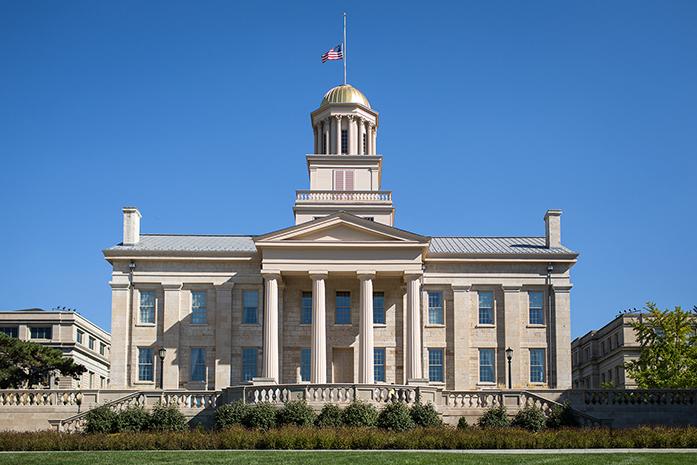A summer vote to increase tuition for the second-consecutive summer may occur next month.
Student leaders, university presidents, and members of the state Board of Regents spoke on Monday regarding Iowa’s bleak funding outlook for higher education in the next few years.
After the state Legislature made midyear financial cuts as the result of a state budget shortfall, the University of Iowa is facing a roughly $15.5 million reduction in appropriations for fiscal 2017 and 2018.
For the UI, the proposed tuition increases would be a rate of 5 percent for resident undergraduates, or $358. Nonresident undergraduate tuition would increase by 6.4 percent, or $1,764. Rates for graduate students would vary. The UI tuition increases would be expected to generate $16.51 million in incremental revenue.
The regents will vote on its second reading of tuition rates at their June 6-8 meeting at the University of Northern Iowa.
RELATED: Outlook for tuition: UP
UI Student Government President Jacob Simpson told The Daily Iowan the change in regents leadership with the departure of former President Bruce Rastetter and former President Pro Tem Katie Mulholland will allow for more public commentary. Current Regent President Mike Richards announced after being elected that the public would be able to comment now at the regents’ meetings.
“What I’ve heard was that this meeting was unique because the board members asked a lot more questions for our university presidents to respond to,” Simpson said. “… I see that increase in discussion to be promising, and I hope that it will continue.”
RELATED: Regents choose Richards, Cownie
The regents approved a “2+2” model for approving tuition rates and appropriations requests in September 2016, hoping it would offer students and their families predictability in planning their finances. Simpson said this model relied on an unrealistic assumption that state support would increase 2 percent each year.
Alternatively, he proposed three courses of action prior to the next meeting: develop a realistic five-year outlook for tuition at the regent universities, include student-government representatives on the regents’ task force to discuss state appropriations, and lobby for all regent universities to use the Iowa Tuition Grant.
Simpson said he does not see the regents’ proposal changing, but he hopes they take action on those three items. He also said UISG will begin discussions with UI President Bruce Harreld to discuss the five-year tuition model and nonresident versus resident tuition rates.
“We cannot place as much of a burden on nonresident students as we are currently compared with resident students,” Simpson told the DI. “With whatever tuition model we come up with, we need to make sure that nonresident students are taken care of.”
Harreld told the DI during an interview on May 4 tuition increases are needed to maintain the quality of the institution if state funding continues to fall short. He said as tuition rises, more of the financial hardship will be put on families and students.
“In a sense, I think the timing is lousy, that the state appropriations come through after we’ve actually raised,” he said.
Regent Subhash Sahai said it amazes him that the world looks up to the United States for its postsecondary education system, but given the cost of an education, priorities need to be evaluated.
“Education, to me, like health, is a great equalizer and does not discriminate …” he said. “I’m surprised that we are seeing that much of a cut in education funding at this crucial time in our state.”



